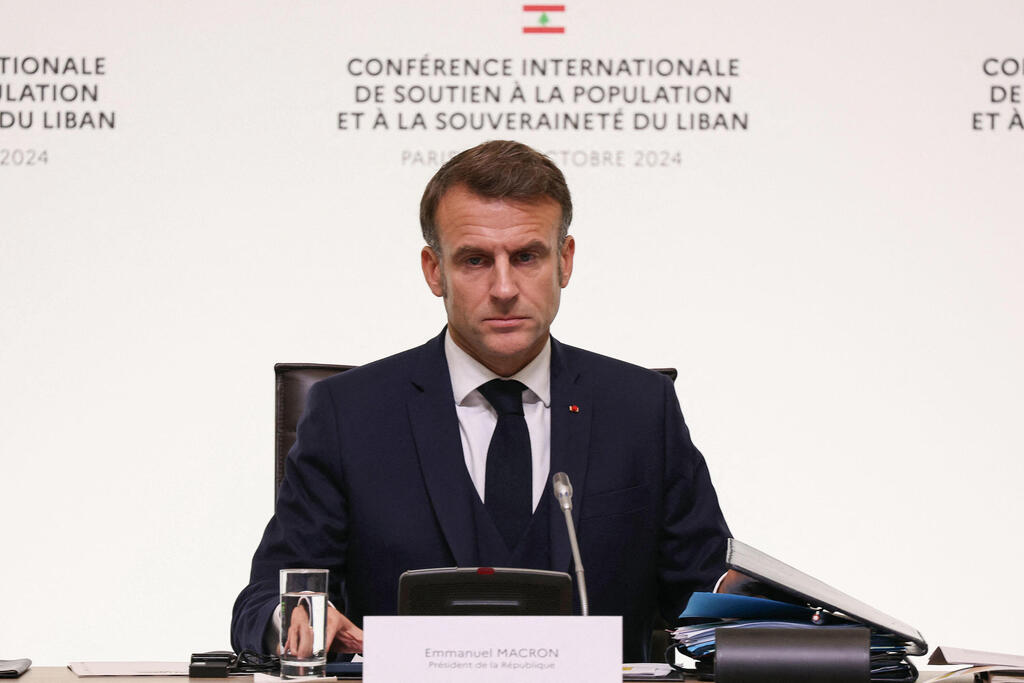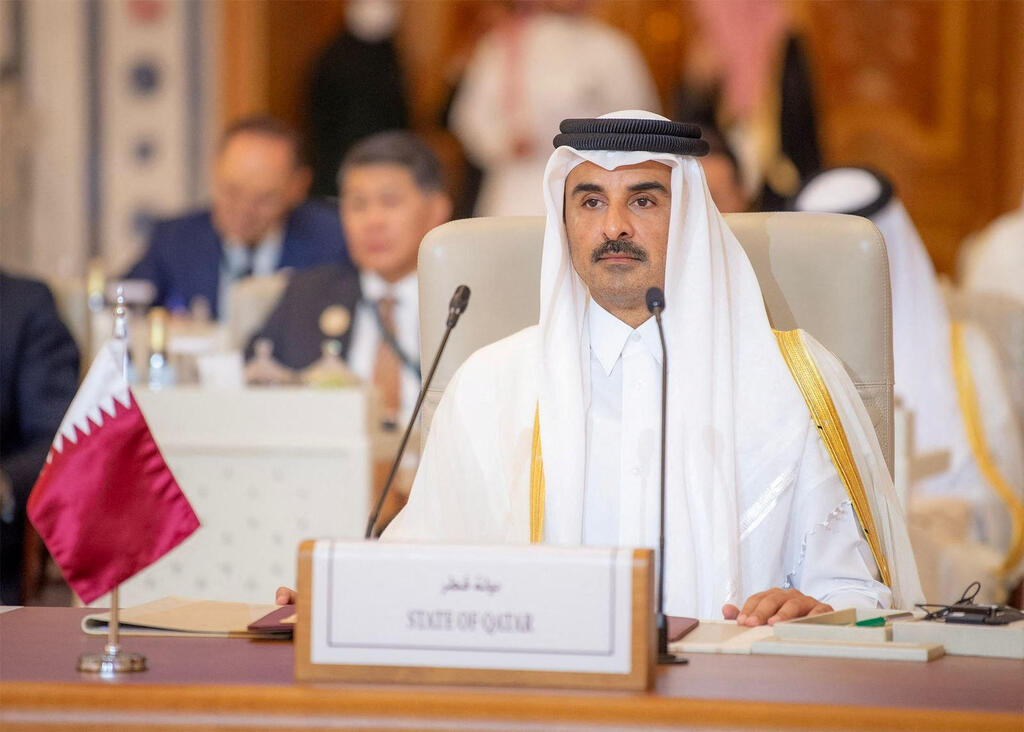Getting your Trinity Audio player ready...
The recent feud between France, or better yet, President Emmanuel Macron and Israel, seems to have a basic and plausible catalyst: money.
Behind the calls for an embargo on arms deliveries to Israel, support for the useless or even malicious UNIFIL’s mission and neo-colonial strife to “protect” Lebanon, there are purely economic reasons. We are talking about both public and private economic interests.
Prime Minister Benjamin Netanyahu slams French President Emanuel Macron for anti-Israel criticism
(Video: GPO)
France’s economy is currently facing significant strain, with implications that could reverberate across the European Union. The crisis centers around rising public debt, projected at over €3 trillion (or 112% of GDP), and a widening deficit, which the French government has struggled to curb despite various austerity measures. Inflationary pressures have exacerbated these issues, impacting everything from energy to food costs, while high public spending commitments in healthcare, pensions and social welfare strain the national budget further.
To address the crisis, France has proposed a 2024 budget aiming to reduce the deficit from 4.9% to 4.4% of GDP. However, the EU is closely monitoring this, as there are widespread concerns over France’s ability to meet fiscal targets amidst political and social challenges. The economic health of France is integral to the EU’s stability, and any significant downturn or fiscal mismanagement could have cascading effects on the bloc. A weaker French economy could slow down EU-wide growth, especially as Europe is already grappling with inflation, energy crises, and security concerns related to the Russia-Ukraine conflict.
Where can France find financial support? The rogue bloc.
According to the experts of the Counter Extremism Project (CEP), France has decided on a strategic partnership with Qatar. Only a fraction of this alliance is transparent — at the beginning of 2024, the emirate pledged to invest €10 billion into the French economy.
The hidden part is much larger and silently grows as Qatar’s significant investments in France’s sports and luxury sectors gradually increase.
The Qatari government owns luxury hotels in Paris, Cannes and Nice, a stake in Bernard Arnault’s renowned French brand, Moët Hennessy Louis Vuitton. Qataris own department store company Printemps abd own the majority of the Paris Saint-Germain soccer club’s shares.
In 2022, France became the second-largest European investment destination for Qatar after the UK, with assets of more than 25 billion euros, and we are talking only about direct purchases by Qatari entities.
This provided Qatar “with cultural leverage that can influence French domestic affairs and foreign policy. This influence is particularly evident in the context of the ongoing conflict in Gaza following Hamas’s October 7 attack.
Qatar and its ruling Al Thani royal family have a history of financially supporting Islamist groups, including Hamas. Research from the Counter Extremism Project has revealed that Qatar plays a primary role in supporting Hamas with upwards of half a billion US dollars in annual financial support”, notes Edmund Fitton-Brown, former coordinator of the UN Security Council’s Monitoring Team for ISIS, Al-Qaeda and the Taliban.
As he notes, Qatar’s influence in French politics might extend further than soft power alone. “France’s current Minister of Culture, Rachida Dati, has recently been revealed to have been in contact with Qatar’s labor minister, Ali bin Samikh al Marri, during the period of the Qatargate corruption scandal when she was serving as an MEP. Al Marri has been described as the leader of Qatar’s efforts to bribe members of the European Parliament by Belgian police, and his connections with Dati are an eye-opening example of Qatari influence reaching deep into the heart of the French government.”
However, it is not just Qatar. Macron’s recent statements and policy regarding Lebanon put him on the same side of the divide as Iran. Even without taking into account the French President's anti-Israel stance, the fact that Macron discusses the ceasefire issue with Iranian President Pezeshkian, who is the puppet master behind Hezbollah and benefits greatly from the ongoing conflict, is significant. Moreover, Macron, in the best traditions of neo-colonialism, claims to be the “protector of Lebanese people” and collects money for them.
His attempts to ignore Hezbollah, which will apparently appropriate a huge chunk of the economic assistance to Lebanon (exactly how it appropriates Western weapons, which are being given to the Lebanese Army to fight this terrorist organization), can be explained by the deep engagement with Lebanese political figures associated with Hezbollah. According to Georges Malbrunot, a journalist at Le Figaro and an expert on the Middle East, Macron struck a deal with Hezbollah's representatives in Lebanon in 2020. After the devastating explosion in the port of Beirut, the French President ensured that his colleague, Rodolphe Saadé, owner of BFM TV and the French maritime transport company CMA-CGM, received the multibillion-euro rebuilding contract.
Hezbollah’s representative in the Lebanese Parliament, Mohammed Raad, met with Macron and Saade. The deal was brokered and later signed by another Hezbollah affiliate - Franco-Lebanese Minister of Transport Ali Hamie. According to Malbrunot, Macron, in exchange for the deal, agreed to ignore any Hezbollah activity in the region. That helps him, if not to control Lebanese politics as of a French colony, but at least to have a great influence on it.
But Lebanon is not the only country in the world Macron wants to control together with Iran. The Southern Caucasus, like the Middle East, is considered by Paris as a region of importance due to its “historical connection.”
For several centuries, France presented itself as a “guardian” of Armenia. Since the moment Armenian leadership agreed to go for a peace agreement with Azerbaijan to end a centuries-long animosity, France and Iran have started pumping it up with weapons, trying to sabotage reconciliation. Both countries need to keep the conflict burning to exert their influence in the region. Given that Azerbaijan is a steadfast ally of Israel, France once again aligns itself with Tehran, which views the Jewish state as its nemesis.
Macron's neo-colonial policy appears to be drawing France closer to the Vichy era, as Paris is collaborating with a regime seeking to be the modern successor of the Nazis, especially with how they view the Jewish state.
Get the Ynetnews app on your smartphone:







